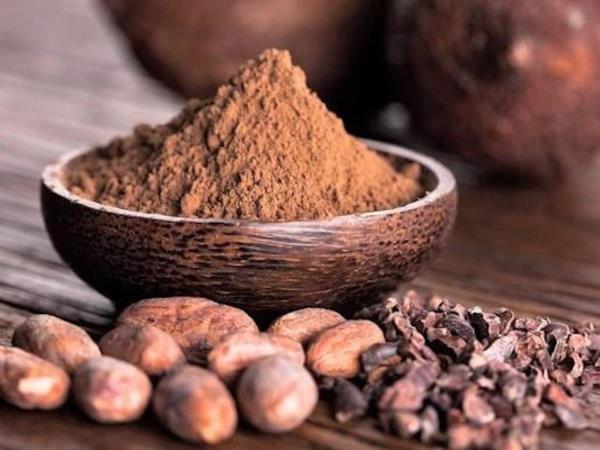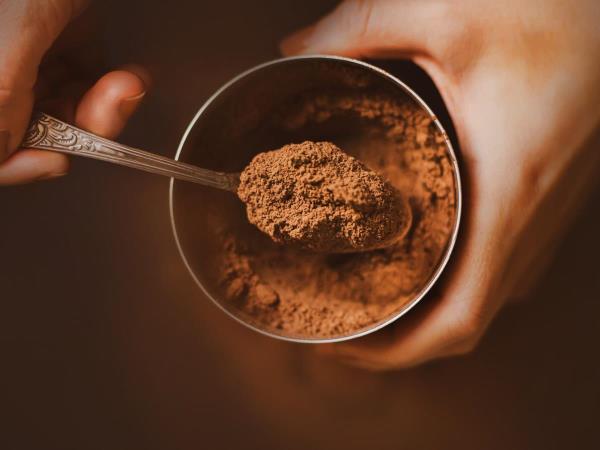Why is cocoa powder special?
Cocoa is naturally rich in substances that have a positive impact on our health. It contains a lot of fiber, which is crucial for good digestion and a feeling of satiety. It also contains a lot of iron, which helps reduce fatigue, and several antioxidants - these substances catch harmful particles in the body called free radicals and neutralize them before they cause damage.
Particularly important are polyphenols, which are natural plant compounds. In simple terms, they are a kind of health guardians that protect the heart, blood vessels, brain, and even the liver. Cocoa also contains methylxanthines, among which theobromine belongs, a substance similar to caffeine that stimulates the nervous system but in a milder and slower way, making it longer-lasting. This means that cocoa can give you energy without taking over you (not to mention causing obsession) like coffee.
What do studies say?
A recent study published in the scientific journal Journal of Nutritional Biochemistry brought interesting findings. Researchers wanted to investigate whether cocoa could influence weight and liver health in obese subjects, in this case mice.
In the study, cocoa powder was added to obese mice for 10 weeks - specifically 80 mg per gram of food. If we translate this to human quantities, for an average adult, this would mean about 10 to 15 grams of cocoa daily - which is approximately one to two tablespoons of cocoa.
The results were surprising. Mice that consumed cocoa:
- gained 22% less body weight than those without cocoa,
- had a smaller spleen, which means there was less inflammation in their bodies,
- had 28% less fat in their livers, which is very important as fatty livers lead to many chronic diseases,
- their oxidative stress (which accelerates aging and causes cell damage) was 57% lower,
- DNA damage in the liver was 75% lower.
What is non-alcoholic fatty liver disease?
You may have heard of this term, or maybe not. Non-alcoholic fatty liver disease means that fat accumulates in your liver even if you do not drink alcohol. This is becoming an increasingly common problem. In Europe, an estimated 25% of adults are thought to have this problem, while in the US, they estimate that as much as one-third of the population may have it. The main reasons are unhealthy diet, too much fat and sugar, and too little exercise.
This disease is silent for a long time - it does not cause pain or give obvious signs. But in the long term, it can lead to liver cirrhosis, which is a very serious disease, sometimes even fatal.
And it is here that cocoa shows its power.
In the mentioned study, scientists also discovered that cocoa increased the activity of certain enzymes, such as superoxide dismutase and glutathione peroxidase. These are body cleansers that help break down harmful substances and regenerate cells. The better they function, the better our body defends itself.
How does cocoa work?
Cocoa helps in several ways at once.
- Firstly, it reduces inflammation, which means less joint pain, less fatigue, and better well-being.
- Secondly, it stimulates the formation of new mitochondria - these are tiny power plants in cells that produce energy. The more energized our cells are, the faster we burn fat.
- Thirdly, cocoa contains fibers that help slow down the release of sugar into the blood, so we have a more stable blood sugar, fewer hunger attacks, and more willingness for a healthy life.
How much cocoa to consume and how?
Experts recommend consuming from 5 to 15 grams of cocoa daily. This means you can easily:
- add a spoonful of cocoa to your smoothie,
- prepare a hot drink with plant-based milk and a little honey,
- use cocoa in baking healthy sweets.
It is important to choose unsweetened, raw, or at least minimally processed cocoa. The best is where the packaging states 100% cocoa without additives or raw cacao.
What do other studies say?
A scientific study from 2015, published in the journal American Journal of Clinical Nutrition, showed that people who regularly consume dark chocolate (with a high cocoa content) are more likely to maintain a healthy body weight. Those who consumed it at least 5 times a week had a lower risk of obesity than those who did not eat it at all.
In another study published in the Journal of Internal Medicine, it was found that cocoa can help lower blood pressure and improve insulin sensitivity, which means the body processes sugar better, which is crucial for preventing type 2 diabetes.
What does traditional medicine say about this?
Our ancestors believed that cocoa was a divine food. In Central America, they have been drinking it for millennia, sometimes even as a remedy for fatigue, anemia, and pain. Our grandmothers also knew how to make a strong cocoa without sugar, with a spoonful of honey and a pinch of cinnamon in winter days - as a remedy for both children and adults.
In some parts of the world, cocoa is still used in combination with medicinal herbs, such as ginger for better digestion, or turmeric for anti-inflammatory effects.
Conclusion
Although it may seem incredible, even a daily spoonful of real cocoa in your diet can make a big difference. It can help you control weight, protect the liver, improve well-being, and reduce the risk of obesity-related diseases.
Of course, cocoa alone will not miraculously solve all problems, but as part of a balanced diet and a healthier lifestyle, it can be an important ally. And why not try something so pleasant, fragrant, and simple?










 Would you like to be informed about news on the website?
Would you like to be informed about news on the website?

